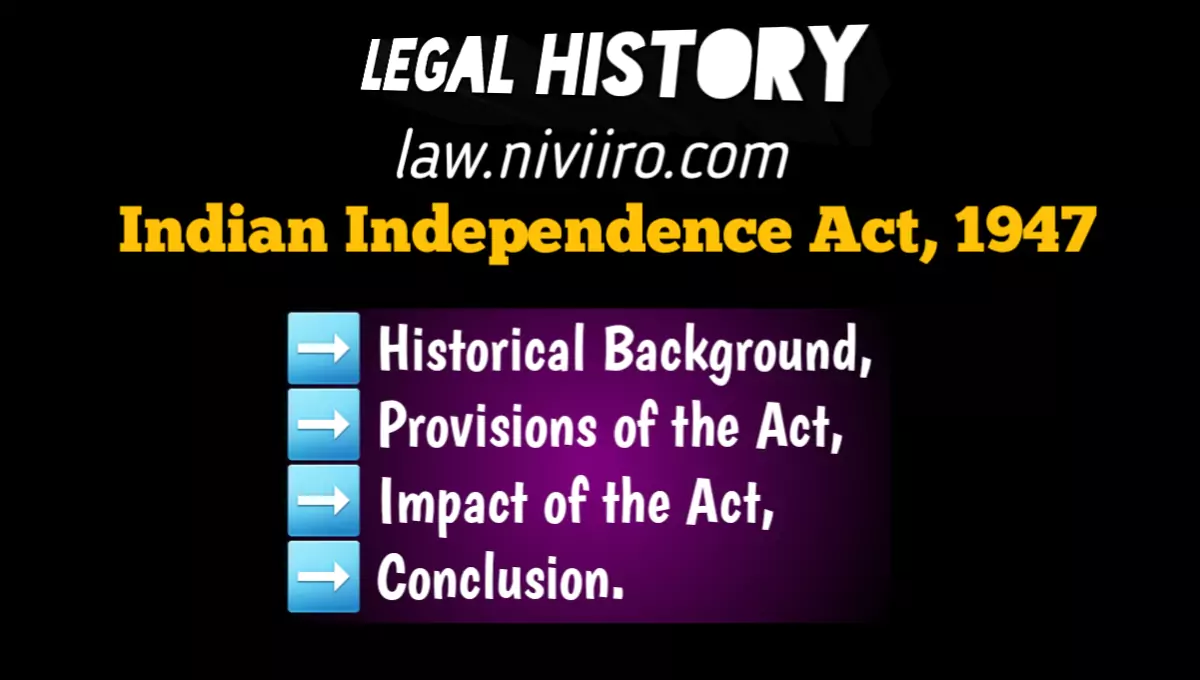The Act of settlement 1781 was an amendment act of 1773 which was passed by the British Parliament on 5 July 1781 to remove the defects of the Regulation Act 1773. It is also known as the Declarative Act, 1781.
Touchet committee | Act of settlement 1781
In the year of 1777 a complaint was made by the directors of the company against the Supreme Court as it was difficult for them to run the administration due to the interface of the Supreme Court. To address this complaint, the House of Commons (the lower house of the British Parliament) appointed a committee to inquire into the administration of Bengal, Bihar and Orissa.This is known as Touchet Committee. The report of this committee was laid for the enactment of the settlement Act 1781.
Aim of the act of settlement 1781
1. Removal of defects of the Regulation Act 1773.
2. Supporting legislation to the full government of Bengal, Bihar and Orissa so that revenue can be collected smoothly.
3. To maintain and protect the laws and customs of the native people.
Provisions of the act of settlement 1781
1. The Governor-General and the Council were not to be subjects jointly or Critically, orders made or ordered by him in a public capacity under the jurisdiction of the Supreme Court and to act as Governor General and Council.
2. It was also laid down that no person should be held civilly or criminally liable in the Supreme Court for the acts done by him in pursuance of a written order of the Governor General and the Council. However, the immunity was not extended until an order of the Council applied to the British subject. Thus, the government was freed from judicial control in regard to its actions in relation to the Indians.
3. The jurisdiction of the Supreme Court was also restricted as it did not exercise any jurisdiction in any matter relating to revenue; or in relation to any act ordered or done in the collection thereof,
The use and practice of the country or the rules made by the Governor General and the Council. Thus the government was given a free hand in the matter of revenue collection and was made independent of the court.
4. No person should be under the jurisdiction of the Supreme Court by virtue of his being a land owner, a farmer of land rent, etc.
The jurisdiction further removed any source of enmity or friction between the Council and the Court.
5. The company, or the Governor-General and the Council, or any person employed by a British subject, should not, by the mere fact of such employment, be subject to the jurisdiction of the Supreme Court, in the cases of In civil actions by agreement of inheritance, inheritance or contract, excluding works for wrong or trespass, or by written agreement to submit a special dispute to the jurisdiction of the courts. However, he was to remain under the jurisdiction of the Supreme Court in cases of offenses and torts.
6. The Act now specifically declared that the Supreme Court shall have full power and authority to hear and determine all acts and suits against the ‘residents’ of Calcutta. all matters arising out of succession and
All matters of inheritance and contract of land and goods were to be settled in accordance with the customs of personal laws.
7. Sadar Diwani Adalat: The Sadar Diwani Adalat was now recognized as Adalat. The Governor-General and the Council were authorized to hear and determine the appeals and references of the mufassil courts in civil matters. it was to be a court of record and its
Decisions were to be final except to appeal to Her Majesty only in civil cases, the value of which was to be £5,000 or more. Thus the status of Sardar Diwani Adalat became equal to
Both were supported by parliamentary law, as were the Supreme Court and both went to the Privy Council by appeal. It was also empowered to hear and determine all offences, misdemeanors and extortion committed in the collection of revenue.
8. It was laid down that no action for wrongful or injury shall lie in the Supreme Court against any person exercising judicial office in the courts of the country for any judgment, decree or order of the Court. For any act done against any person by, or by order of, a court.
Legislative Power | Act of settlement 1781
The Act empowered the Governor General and the Council To make rules for the provincial courts and councils. The Governor-General and the Council now received two-fold legislative power: one for Calcutta under the Regulation Act and the other for Bengal, Bihar and Orissa under the Act of 1781.
Defects of Act of Settlement, 1781
1. The governor and general did not have veto power and the governor general was made answerable to the director and was held responsible for all acts relating to administration in India, but the governor general had no independent authority to adjudicate.
2. The Governor was in actual practice subordinate to the Governor General.
3. There was a lot of confusion about the power and jurisdiction of the Supreme Court.
4. The Act also failed to address the concerns of the people of Indian origin who were the real victims.
5. The issuance of writs was a matter of great confusion within the jurisdiction of the Supreme Court. The charter issue provided certain writs to the Supreme Court in some cases but in other cases the charter had provisions for confusion.
Related Post
Important Questions | Act of settlement 1781
When was the Act of 1781 passed ?
The Act of settlement 1781 was an amendment act of 1773 which was passed by the British Parliament on 5 July 1781 .
What was ‘Touchet Committee’ ?
In the year of 1777 a complaint was made by the directors of the company against the Supreme Court as it was difficult for them to run the administration due to the interface of the Supreme Court. To address this complaint, the House of Commons (the lower house of the British Parliament) appointed a committee to inquire into the administration of Bengal, Bihar and Orissa.This is known as Touchet Committee. The report of this committee was laid for the enactment of the settlement Act 1781.
What are the main objectives of the Settlement Act 1781 ?
1. Removal of defects of the Regulation Act 1773.
2. Supporting legislation to the full government of Bengal, Bihar and Orissa so that revenue can be collected smoothly.
3. To maintain and protect the laws and customs of the native people.
Explain the provisions and demerits of the Settlement Act 1781 ?
1. The Governor-General and the Council were not to be subjects jointly or Critically, orders made or ordered by him in a public capacity under the jurisdiction of the Supreme Court and to act as Governor General and Council……
Refrences Book
- M.P. Jain, Outlines of India Legal History
- Indian legal and constitutional history by Dr. N. V. Paranjape
- A.B. Keith, Constitutional History of India
- M. Rama Jois, Legal and Constitutional History of India
- V.D. Kulshrestha, Landmarks in Indian Legal History
- Rankin G.C. Background to Indian Law

















